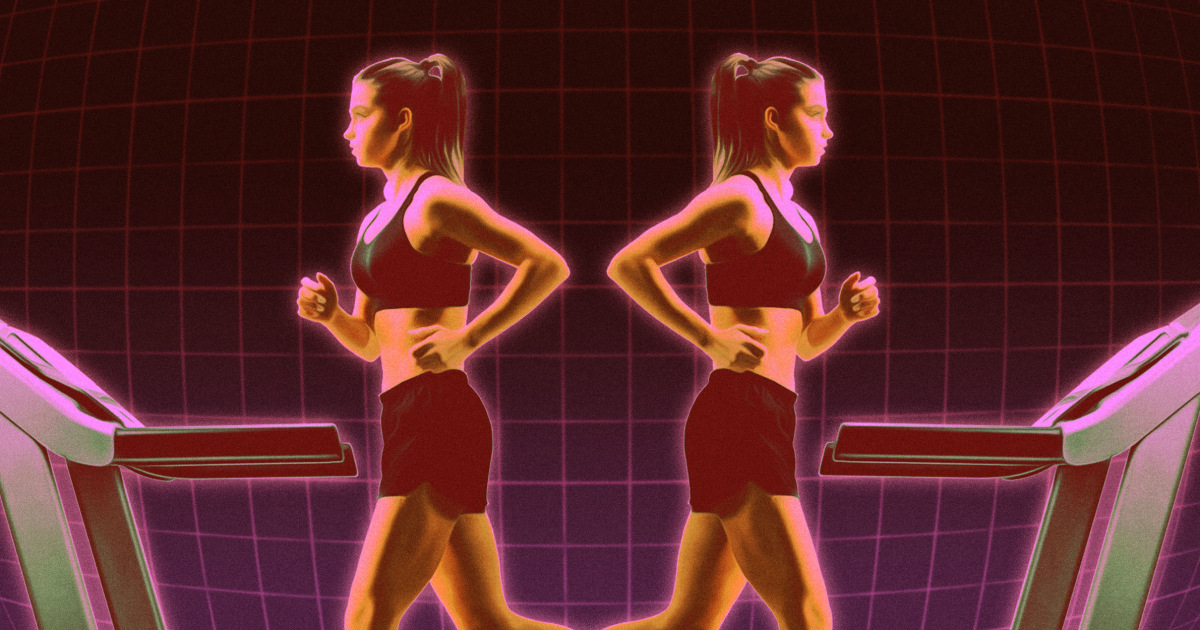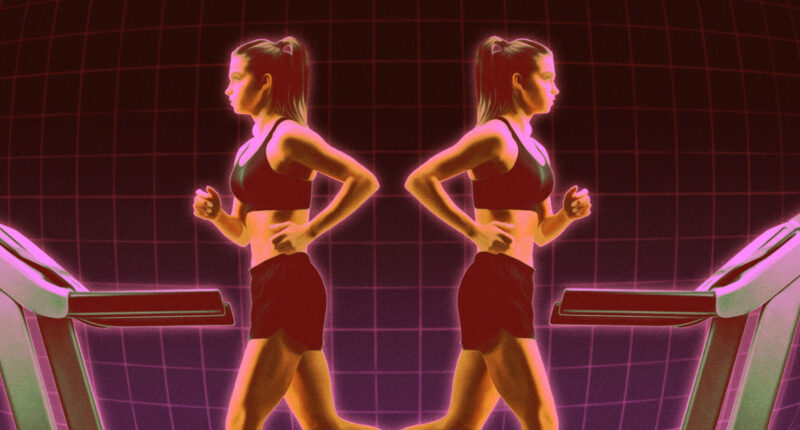
As millions of users experiment with ChatGPT, some people are turning to the generative artificial intelligence chatbot for workout advice and what they say is a cheap alternative to a personal trainer. But some trainers say they can’t be replaced that easily, and that taking workout advice from a chatbot could have some unexpected consequences.
Using AI for nutrition and health-related advice is already under scrutiny. The National Eating Disorders Association’s chatbot Tessa was disabled after users said it gave them weight loss advice, NBC News reported this month. Some medical experts warned that AI chatbots shouldn’t replace consulting with real-life health professionals. But that hasn’t stopped some users from trusting the chatbot with their fitness and health goals.
Since ChatGPT went viral at the end of last year, concern about AI taking over human jobs has proliferated across several industries, whether it’s AI replacing Hollywood screenwriters or HR job recruiters. For many people replacing their personal trainers with AI, it’s a matter of saving costs. “Workout plans for free. In THIS economy?!” one user wrote in the caption of their TikTok video on making ChatGPT their new personal trainer. TikTok videos related to AI-generated workouts have received hundreds of thousands of views on the platform.
Nicholas Gunning, 32, a former personal trainer living in Texas, is documenting a 30-day training trial with ChatGPT on his Twitter account and YouTube channel. “ChatGPT is very budget friendly in the sense all you need is your internet connection or cellphone,” he said.
Human personal trainers can be costly depending on their expertise and location. Nimble Fitness, a New York City gym, charges $120 to $350 per session with one of its 13 personal trainers, according to co-owner Daniel Lucas. Jill Goodtree, a certified personal trainer in New York City, said her rate ranges from $130 to $170 per session.
Sidharath Chhatani, 31, based in Denver, said using AI for personal training is cheaper for him than hiring a personal trainer. He spends just under $100 per year on his subscriptions to AI-powered workout apps Aaptiv and Fitbod, two of the five most downloaded AI fitness apps globally over the last year, according to Sensor Tower, a market intelligence firm. A single personal training session would cost Chhatani at least $80, he said.
Chhatani is using ChatGPT for the next eight months to train for his first marathon. ChatGPT’s weekly training plans include a 40-minute lower-body workout and a half-hour yoga session. “I’ve never run a marathon, which is why it’s easier to do it this way. Just ask a bot to do it for you,” Chhatani said.
Chhatani and Gunning say that ChatGPT can provide the same versatility that a human trainer can provide. For example, ChatGPT modifies Chhatani’s workout schedule when he tells the bot he is traveling. Gunning asks ChatGPT for exercises that target a specific muscle. “It gives me the workout, it gives me instructions on how to do that specific (workout), exactly what a trainer would do,” he said.
But personal trainers who spoke to NBC News warned that using ChatGPT as a trainer could leave a lot to be desired, or worse, be dangerous.
Goodtree found a few flaws when she asked OpenAI’s generative chatbot to write her an upper-body workout for hypertrophy, or muscle growth. The chatbot recommended three sets of upper-body exercises, like push-ups and bicep curls, which Goodtree says is not enough for most people to build muscle mass.
Goodtree also noted that ChatGPT is unable to assess form, a crucial skill for personal training. “ChatGPT cannot keep you safe,” she said.
“Free is not always better, especially when it comes to your health, your wellness, your well-being. You only have one body, ” Goodtree said.
Daniel Lucas, a personal trainer of 25 years, said there were a lot of gaps in a ChatGPT-generated workout plan. NBC News asked Lucas to review a workout plan created by ChatGPT that was shared on Reddit.
“ChatGPT lacks specificity,” Lucas said. ChatGPT included five to 10 minutes of stretching to cool down after each session, but didn’t specify which muscle to stretch. Lucas warned that stretching the wrong muscle could weaken it. The Thursday workout had eight to 12 repetitions of planks, but Lucas said planks should be measured by set time rather than repetitions.
Despite the online discourse about replacing trainers with AI, some personal trainers were optimistic, rather than fearful, about the future role of AI in their careers and the fitness industry at large.
Lucas said AI-generated workout plans could encourage more Americans to exercise. “If anything, including AI, can get people to start moving and understanding the major difference between exercise and training and actually making it a part of their life, it’s a good thing,” he said.
Thomas McGee, 32, an online fitness and nutrition coach, said personal trainers could also incorporate generative AI into their business models. “I think it’s an exciting time,” he said. “What I’m trying to figure out is how do I leverage this technology shift, which I think is amazing, but help guide it to give my clients personalized plans?”
McGee launched a free AI workout builder, which he’s been working on over the past three months, through AI-app builder buildai.space. He explained on TikTok, where he has 54,000 followers, that users who answer a set list of questions, including age, gender and weight, can receive a customized weekly workout plan that includes sets, repetitions and meal plan suggestions. He said he recommends the AI app to clients who are only interested in a workout plan.
“What I found is a lot of people use it and then they don’t get the results they want. And then they come back to me and say, ‘Hey, I need more help.’ That’s where they end up typically working with me,” McGee said.
The personal trainers still cautioned against solely relying on generative AI for fitness advice. Goodtree said ChatGPT users should “take what it’s saying at face value. Like all the responses I got, it always says consult a doctor or a certified professional before doing any fitness activity.” She said she refers her clients to a registered dietitian for nutrition plans. But many users are asking ChatGPT for nutritional advice alongside their workout plans.
Personal trainers including Goodtree and McGee pointed out another limitation of AI personal trainers that users like Chhatani and Gunning also said they’re missing from ChatGPT: a lack of human connection.
“There’s no substitute for human contact and human energy,” Lucas said. “In every interaction with a human, you’re either giving or receiving energy. And that doesn’t happen via artificial intelligence.”
Source: | This article originally belongs to Nbcnews.com










